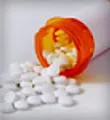Antidepressants: Best for Severe Depression?

Jan. 5, 2010 -- Some antidepressants may work best for people with very severe depression, according to a new analysis, but may provide little or no benefit over placebo for those with mild, moderate, or severe depression.
''For patients with very severe depression, the medication did have a potent effect compared to placebo," says Jay C. Fournier, a psychology graduate student at the University of Pennsylvania, Philadelphia, and lead author of the analysis, published in the Journal of the American Medical Association.
But, he says, ''the effects of the active ingredients of the medication were pretty small or nonexistent for patients with mild or moderate depression or even into the severe range."
However, the analysis only looked at two antidepressants.
Effects of Antidepressants: Study Details
Fournier and his colleagues pooled the results of six previously published studies that compared the effects of antidepressants to placebo for 718 adults with varying levels of depression.
Three of the studies looked at paroxetine (Paxil) and the others looked at imipramine (Tofranil).
Paxil is a type of antidepressant known as an SSRI (selective serotonin reuptake inhibitor), which is thought to boost mood by making more of the neurotransmitter serotonin available in the brain. Other popular SSRIS include citalopram (Celexa), fluoxetine (Prozac), and sertraline (Zoloft).
Tofranil is an older medication, known as a tricyclic antidepressant, which works by making more of the neurotransmitters serotonin and norepinephrine available.
In the new analysis, Fournier's team only included studies that met their criteria. Studies, for instance, had to have individual patient data, not just overall results.
And the patients evaluated had a broader range of depression severity than those in most studies. Although many other studies only look at severely depressed patients (with a score of 23 or above on a commonly used scale known as the Hamilton Depression Rating Scale), Fournier's team evaluated studies that included patients with scores in the low teens, considered mild or moderate depression, through the 30s, or very severe.
Effects of Antidepressants: Study Results
''We were looking for differences between placebo and medications," Fournier tells WebMD. "We were interested in whether there was a clinically meaningful difference." One way the researchers defined ''clinically meaningful" was to have an improvement of three or more points on the Hamilton scale between placebo takers and medicine users.
''The main finding is that the benefit of medication, over and above the placebo, varied as a function of the severity of the depression," he says. "The effect of the medication for the mild, moderate, and even severe fell below this three-point difference that would be clinically significant."
The analysis suggests that some depressed people do respond to placebo, he says, and that severely depressed people are most likely to benefit from antidepressants.
Even so, he tells WebMD, individual treatment decisions should be made in consultation with a physician.













